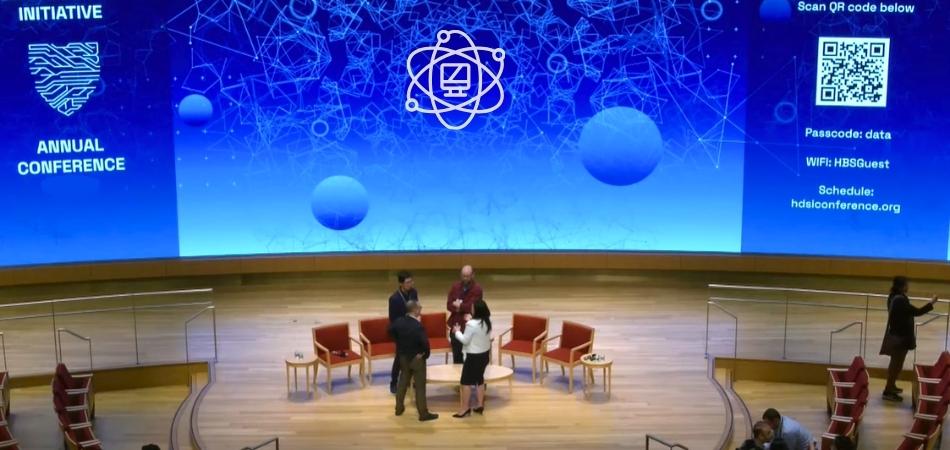Staying updated in the ever-expanding universe of technology is not just an option but a necessity. Amidst this dynamic environment, there exists a beacon for knowledge exchange and innovative dialogue. This brings us to an essential query: what is the computer science conference?
It’s a dedicated nexus for the brightest minds in computer science, from seasoned academics to industry veterans, to cross paths. These gatherings are more than events; they are catalysts for inspiration, debate, and foresight in the realm of computer science, offering a glimpse into the latest research and technological foresight.
By plunging into these melting pots of expertise, one engages with the pulse of progress, building relationships and weaving the fabric of future innovations in the tech landscape. Find out more about the computer science conferences in the following article.
History of Computer Science- A Brief Overview
The journey of computer science unfolds as a remarkable chronicle of human ingenuity. From ancient tools to modern virtual realms, its evolution mirrors society’s intellectual growth. This discipline has not just adapted but revolutionized our interaction with the world.

In the 19th century, Charles Babbage envisioned the analytical engine, a precursor to modern computers. Ada Lovelace, his contemporary, is credited with the first algorithm intended for machine processing. Their pioneering efforts laid a foundational stone for computational technology.
The post-World War II era saw immense advancements due to increasing practical demands. The invention of transistors ignited a trend towards miniaturization, a crucial phase for modern computing. Subsequently, the rise of the internet and artificial intelligence marked the latest transformative chapter.
What is the Computer Science Conference?
As one explores the world of technology and innovation, one encounters a variety of platforms dedicated to growth and knowledge exchange. Computer science conferences are critical hubs for collaboration and discovery. They symbolize the crossroads where academia, industry, and upcoming ideas converge for a broader intellectual horizon.
In essence, a computer science conference is an assembly of professionals, researchers, and enthusiasts from the tech sphere. These events are designed to showcase breakthroughs, stimulate dialogue, and promote extensive network building. Here, contemporary issues meet innovative solutions, driving the sector’s dynamic evolution forward.
Participants engage in presentations, workshops, and discourses, often around specific themes or advancements. Similar to international engineering and applied science conferences, the interaction facilitates a deeper comprehension of the field and stimulates collaborative opportunities. Importantly, these conferences act as springboards for emerging talent, catapulting novel ideas into the industry’s spotlight.
Beyond individual learning, these gatherings have a profound collective impact. They shape future research directions, influence educational practices, and inform policy-making. In these ways, computer science conferences are more than events; they power technology innovation.
Different Types of Computer Science Conferences
In the vibrant landscape of computer science, various conferences serve as key junctions for idea exchange and collaborative thinking. These gatherings, diverse in nature, cater to different specializations within the field. Understanding the types helps professionals and enthusiasts alike navigate where their interests and endeavors align.
Academic Conferences
Focusing primarily on scholarly research, academic conferences are traditional in their approach. Participants submit papers, which undergo peer review before selection for presentation. The submission of these papers in a conference has an impact on the paper’s acceptability. These events facilitate critical discussions, often igniting future research collaborations.
Industry Conferences
These are tailored for professionals working in the tech industry. They emphasize recent technological trends, product innovations, and practical challenges. Networking, here, becomes a significant element, often leading to business or collaborative opportunities.
Workshops and Symposia
Workshops and symposia usually concentrate on niche areas within computer science. They encourage the deep diving of participants into specialized topics, promoting hands-on experience and detailed discussions. Such intimate settings allow for a more interactive learning approach.
By identifying the right type of conference, individuals can significantly enhance their knowledge base, contribute to ongoing discussions in the field, and potentially spark revolutionary ideas. These professional gatherings, in their various forms, continue to drive the spirit of innovation and collective advancement in the ever-evolving realm of computer science.
Who Should Attend the Computer Science Conference?
Computer science conferences serve as melting pots of innovation, discovery, and networking, drawing diverse participants worldwide. These forums aren’t exclusive to just one demographic but extend across various professional and academic spectra. Recognizing who should attend can help harness the collaborative energy these conferences offer.
Researchers and Academicians
For researchers and academicians, these conferences present platforms for intellectual exchange and recognition. They share findings, gain feedback, and stay updated on industry trends. Such interactions often lead to collaborative research efforts, enhancing scholarly work’s scope and impact.
Moreover, they immerse themselves in a pool of contemporary studies. Networking with peers helps in gaining different perspectives on complex topics. Ultimately, these events support their continuous professional development and contribution to the field’s body of knowledge.
Industry Professionals
Professionals from the tech industry flock to these conferences for insights and updates. Here, they explore emerging technologies, market trends, and competitor initiatives. This knowledge is crucial for strategic planning, competitive positioning, and driving innovation within their companies.
Additionally, they find opportunities for collaboration and recruitment. Interacting with potential clients or partners helps in business expansion. While you have to consider some expenses to attend in a computer science conference. As attending these events can significantly influence a company’s trajectory and individual career paths.
Students and Emerging Professionals
Students and emerging professionals gain significantly from this immersive educational experience. They witness theoretical knowledge applied in real-world scenarios, enhancing their understanding and skills. Also, direct interaction with established professionals provides mentorship and career guidance.
They also get opportunities to present their innovative ideas. Receiving feedback, they refine their thought processes and technical competencies. This practical exposure is invaluable in bridging the gap between academic learning and industry requirements.
From seasoned academicians to budding enthusiasts, these events offer a unique confluence of learning, networking, and opportunity. Identifying one’s role in this ecosystem ensures that participants fully leverage the collective knowledge and prospects that such conferences encapsulate.
Perks of Attending the Computer Science Conference
Computer science conferences are more than just gatherings; they are vibrant ecosystems buzzing with the potential to educate, inspire, and elevate. These events are a goldmine for professionals, academicians, and students alike. The myriad perks they offer go beyond mere attendance, profoundly impacting one’s professional journey.
- Knowledge Expansion: Attendees encounter the latest research and technological innovations. This immersion broadens understanding and inspires academic and professional pursuits.
- Networking Opportunities: Conferences gather like-minded professionals from diverse backgrounds. These interactions often sow the seeds for future collaborations and opportunities.
- Professional Development: By engaging in high-level discussions and workshops, participants refine their skills. These platforms catalyze continuous learning and professional growth.
- Presentation and Feedback: Presenting research or projects allows attendees to gain critical feedback. This exchange sharpens their work and drives further innovation.
- Access to Resources: Many conferences provide exclusive materials, tools, or software. Access to these resources can significantly enhance one’s work or research.
- Career Advancement: Through networking and exposure, attendees often meet potential employers or collaborators. These connections can lead to exciting career opportunities or ventures.
- Global Perspective: Interacting with international peers provides insights into global trends. This wider view can inform and improve one’s approach to one’s work or studies.
These events are not just about the present discussions but also about igniting the spark for future innovations and forming lasting networks. Engaging actively within these conferences paves the way for a journey of perpetual learning, collaboration, and staying abreast of this fast-paced industry.
Final Thoughts
While navigating the expansive realms of technology, professionals, scholars, and enthusiasts often ponder the question, “What is the computer science conference?” These essential gatherings emerge as epicenters of innovation, learning, and networking, essential for staying abreast of rapid technological advancements.
From diving into intricate research to exploring global tech trends, participants indulge in a rich, collaborative atmosphere that fosters both individual growth and the collective advancement of the field. The conferences, with their multifaceted interactions and knowledge-sharing sessions, act as vital catalysts, propelling the discipline forward and sparking revolutionary ideas that shape the digital world.
Thus, whether for career enhancement, academic curiosity, or entrepreneurial aspirations, immersing oneself in these dynamic conferences is an investment into a future where technology and human ingenuity converge to redefine possibilities.







